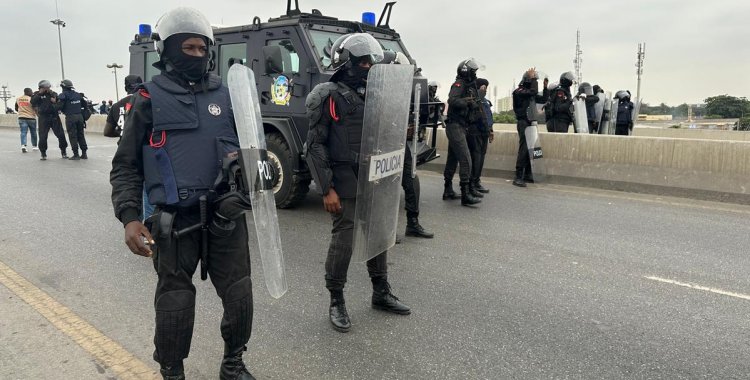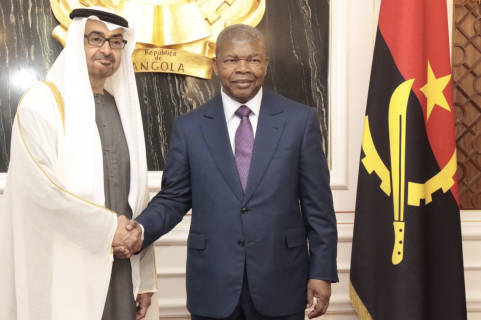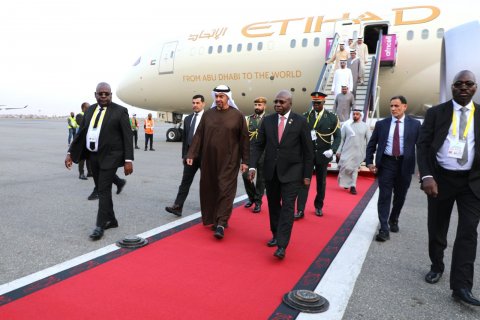The press conference, held this Friday by the so-called social movement against the decree approving the fuel price increase, a platform that brings together several civic organizations, was preceded by an atmosphere of tension and indignation among activists.
While the organization was preparing conditions at Largo Cesário Verde in the Vila Alice neighborhood of Luanda to welcome journalists, and with a sign already posted there announcing the reasons for the press conference, police officers appeared demanding the removal of the advertising material.
The police presence at the scene generated tension and outrage among several activists, who, using their cell phones, were livestreaming social media denouncing the "intimidating behavior" of the officers, as Lusa observed at the scene.
"We're here with all the young people for this press conference, and we have a problem. The police have already come to try to prevent a press conference. The young people have already received a letter from the government accepting the march, and the police are coming to prevent it. We have to stop this," activist Laura Macedo denounced on social media.
Laura Macedo called the police's actions "disgraceful," even forcing activists to remove the sign from the site, amidst numerous complaints and criticisms from them.
Activist Gilson da Silva Moreira "Tanaice Neutro," also in a livestream from the site, condemned the police presence and criticized President João Lourenço, who, in his view, is "insensitive" to the people.
"I no longer understand what [President of the Republic] João Lourenço wants with the people (...), these police who only follow orders from above are also in a bad way, because they also travel by taxi. We're not leaving here, because we're not criminals," the activist said.
Almost 40 minutes after the scheduled time, and despite police attempts to stop them, the activists once again posted the sign that read: "Fuel prices go up, life stops! The people can't take it anymore! We're on the streets against the abusive fuel price hike and the unsustainable cost of living."
Taxi fares (commonly known as "candongueiros") have increased to 300 kwanzas per trip, and city buses have increased to 200 kwanzas per trip, effective Monday. This measure follows the increase in the price of diesel, which rose from 300 to 400 kwanzas per liter starting July 4th.
Activist Adilson Manuel, at a press conference, said that the demonstration, scheduled for Saturday, should begin at Largo do Mercado de São Paulo and end at Largo da Maianga, 200 meters from the parliament building, because there was a "positive response" from the Luanda Provincial Government (GPL).
In a meeting held on Thursday with the National Police Provincial Command, the activist said the police, "in violation of administrative rules," stated that the rally for the march should not be in front of the São Paulo Market, but at Largo do Cemitério da Santa Ana.
"We, the movement, understand that we must comply with the law and march according to our itinerary without changing the route," the activist assured, inviting the public to join the "peaceful and orderly" march and the police to ensure the safety of the protesters.
The GPL, in a letter signed by the governor's office and shared this Friday by the march organizers, states that "there is no problem with holding the march" and advises activists to contact the Police Command to "arrange security measures and align with the itinerary."
Lusa contacted the police spokesperson in Luanda but has not yet received a response.







